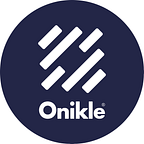Do I need a degree to have a career in AI?
Humans have come a long way. We started from hunting and gathering (Society 1.0), then came to the agrarian society, when we started farming (Society 2.0). Then came the industrial revolution (Society 3.0) which accelerated our development to an unprecedented level. When we reached the information society (Society 4.0) we saw a whole new level of leap. Now we are at a new crossroads of human history. The term to describe the new revolution is coined as “Society 5.0”. This new Society 5.0 about maximizing the use of digital advancement and innovation. One key take away from each advancement is that different skills are required to succeed in society. That is also true for Society 5.0. One of the ways to succeed in Society 5.0 is to have a career in Artificial Intelligence (AI). So, how do you do that? Get to know through this two-part series.
AI has the potential to produce some of the most significant and disruptive breakthroughs of the twenty-first century. Self-driving vehicles, robotic assistants, and automated medical diagnosis are all results of an AI revolution that is reshaping how we live and work. This has resulted in the need for AI engineers to double in the last few years. Now there are almost infinite chances for individuals who wish to work at the forefront of AI research and development.
According to the McKinsey Global Institute, around one-third of the American workforce will need to change jobs by 2030. Workers in data-intensive industries, such as financial and administrative professionals, legal support staff, salesclerks, and IT workers, are particularly vulnerable. However, the World Economic Forum estimates that AI would result in a net gain of 58 million employment globally.
AI is expected to produce 2.3 million employment by the end of 2020, resulting in a net gain of 500,000 possibly new jobs, according to Gartner. And, in light of the COVID-19 issue, career possibilities for AI workers are expected to skyrocket. Given that businesses in many industries have begun to adopt AI and ML, it is clear that individuals knowledgeable in these technologies will be in high demand far beyond 2021.
Despite the fact that the COVID-19 pandemic has devastated millions of jobs, many corporations are boosting their usage of artificial intelligence. According to McKinsey from 2017, one-third of US jobs will be replaced by automation and robotics by 2030. Events such as pandemics will undoubtedly alter all timeframes. However, it is up to people to determine how they want to incorporate this technology into their lives.
However, according to an O’Reilly study, there is a talent shortage in AI capabilities, which is the most significant obstacle to AI adoption. The main source of concern for the AI crisis is that academic and training programs are out of step with current industrial developments. Organizations do not just want specialist knowledge in AI technology, but also people who can be creative and modify their abilities over time.
Whatever the new AI economy entails for the future workforce, college students and young professionals stand to gain from working in this expanding area. However, entering the field of AI is more complicated than simply mastering computer science or getting a college degree. A job in AI requires initiative, courage, and know-how.
So, if you’re interested in starting a career in AI or you want to know if a college degree is necessary or not, stay tuned for the next part.
If you are interested in our service, please register your email address in the following link to get an early access and test our All-new preprint platform that provides stress-free search experience with AI engines.
Written by Wanonno Iqtyider
